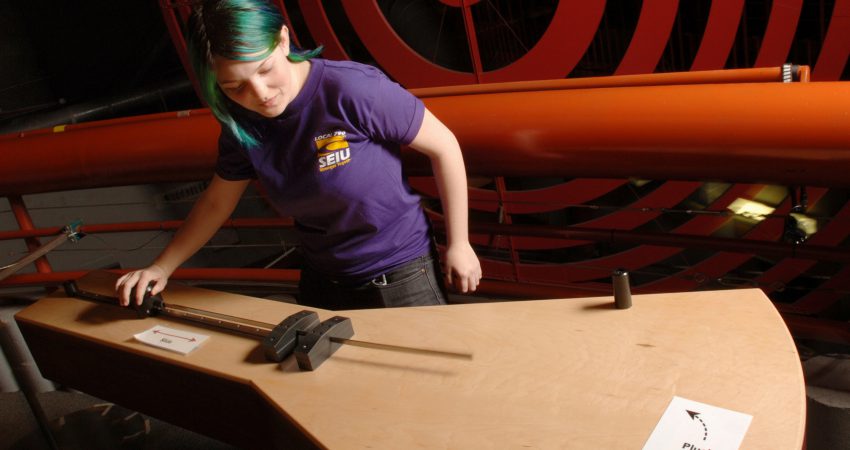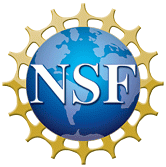
By Heather King - October 2014
PAPER CITATION
Allen, L. B., & Crowley, K. J. (2014). Challenging beliefs, practices, and content: How museum educators change. Science Education, 98(1), 84–105. doi:10.1002/sce.21093
In this paper, Allen and Crowley describe a five-month project in which university researchers and museum educators worked together to develop a new field trip program for middle school students.
The authors note that museum educators rarely experience ongoing training; they tend to rely on their past experiences of teaching and learning to guide their interactions with learners. As a result, the practice of museum educators is frequently organized around traditional transmission models of learning, in which educators provide and learners absorb a given body of knowledge. More contemporary conceptualisations of education, by contrast, see experience and interaction as vital for learning.
Research Design
Eight educators from a large natural history museum in a midsized Rust Belt city took part in the project. They were developing new inquiry-based tours on climate science. During the tours, they modeled scientific observation at a single exhibit and then used driving questions to help students document their own observations and reflections.
After each school trip, the educators engaged in reflective debriefing meetings in which they shared their experiences of structuring the visit and the pedagogical strategies they had employed. Researchers facilitated these meetings and also interviewed the museum educators to study how their practice was evolving.
Findings
As they implemented the new field trip structure, several educators found their beliefs challenged by the climate science content, the pedagogical approach, or both. Several educators tried to avoid the political context of climate science. Others remained uncomfortable with letting learners lead and continued to judge the success of their school trips by the volume of information they felt they had transmitted.
However, the actions and opinions of other educators changed during the project. “Steve” valued the opportunity to reflect on colleagues’ experiences as well as his own. “Paul,” a former middle school teacher, welcomed the learner-centred approach and yet admitted he was having difficulty implementing the new facilitation strategies.
Although changes in their practice and approach varied, the educators’ participation in the project and its regular reflective discussions resulted, Allen and Crowley argue, in an emergent community of practice. This paper therefore demonstrates how a community of practice can be developed through shared reflection and communication.
Theoretical Basis
The theoretical perspective underpinning both the design of the project and the ongoing professional development reported in this paper is that learning is an active, participatory process. The analysis of the educators’ experiences is thus grounded in sociocultural learning theory. Communication and collaboration among the educators led them to develop new practices. The project itself promoted key guiding principles for inquiry-based learning: learner autonomy, conversation and reflection, and deep investigation of selected concepts rather than shallow exposure to many facts.
To support the on-going process of professional development (PD), Allen and Crowley acknowledge the importance of providing a safe environment in which ideas, successes, and failures may be shared. They also note that the process was designed in accord with Nunnery’s (1998) study, which revealed that educators do not necessarily need to develop new approaches themselves, but they do need to witness the successful implementation of new approaches in context. Furthermore, the iterative process of sharing ideas and experiences allowed the educators to feel part of the process of developing the new tour while giving them room to reflect on how best to support learning on the museum floor. The authors thus describe this process as an emergent community of practice (Lave & Wenger, 1991) in which the educators developed their own professional language and had space and time to engage in reflection.
Implications for Practice
By instigating an open, encouraging, and reflective process, the program reported in this paper changed the practice of educators, including some who struggled with the scientific content, a politicised topic, and a challenging new pedagogical approach. The iterative long-term nature of the project highlights the value of seeing professional development as a continuing process.
Allen and Crowley’s study also highlights the value of professional communities of practice and notes their role in facilitating staff engagement with professional development initiatives. As informal institutions become an increasingly prominent in science education, effective support for learning communities of informal educators is likely to become increasingly important.
References
Lave, J., & Wenger, E. (1991). Situated learning: Legitimate peripheral participation. Cambridge, UK: Cambridge University Press.
Nunnery, J. A. (1998). Reform ideology and the locus of development problem in educational restructuring: Enduring lessons from studies of educational innovation. Education and Urban Society, 30(3), 277–295.




